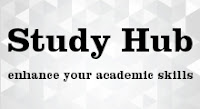 Coaching Qualifications are a great thing to have when you're interested in a career in Sport! They can help advance your own knowledge of a sport, help you develop as a performer and as a coach. I originally got mine because I needed them to work as a sports coach but since coming to Uni they have found me countless jobs and opportunities!
Coaching Qualifications are a great thing to have when you're interested in a career in Sport! They can help advance your own knowledge of a sport, help you develop as a performer and as a coach. I originally got mine because I needed them to work as a sports coach but since coming to Uni they have found me countless jobs and opportunities!
Lots of people at Uni say to me that they are interested in doing them but they cost a lot of money and/or they can't find a course... Well, yes they will cost some money but see it as an investment, and there are plenty of schemes about to help with the cost. For example a few years ago the FA ran women only coaching courses for FREE to train more women to become football coaches as part of their 'getting women/girls playing football' campaign. The 'This Girl Can' Campaign by Sport England may also have funding to help some into coaching. Consider less traditional sports too - archery, canoeing, fencing, goalball are just the beginning!
Finding a course, on the other hand is something I can help with!

 Sports Coach UK and 1st 4 Sport are a great place to start, as well as your governing body for your own sport. There are plenty of courses running for a wide variety of sports so have a look, even at sports you've never tried, and see what you think. Each sport will have their own ranking system of qualifications for coaches but a general rule is that a Level 1 course is for those who are looking to be an assistant coach, are just getting into a sport or are still Juniors; Level 2 courses are for coaches who want to run their own sessions. Most sports require that you complete a Level 1 before a Level 2 so consider that when you are thinking about booking courses - don't book on to a Level 2 before completing your Level 1! National Governing Bodies of sports are also a good place to look - for example the FA, British Gymnastics, England Athletics, Badminton England etc...
Sports Coach UK and 1st 4 Sport are a great place to start, as well as your governing body for your own sport. There are plenty of courses running for a wide variety of sports so have a look, even at sports you've never tried, and see what you think. Each sport will have their own ranking system of qualifications for coaches but a general rule is that a Level 1 course is for those who are looking to be an assistant coach, are just getting into a sport or are still Juniors; Level 2 courses are for coaches who want to run their own sessions. Most sports require that you complete a Level 1 before a Level 2 so consider that when you are thinking about booking courses - don't book on to a Level 2 before completing your Level 1! National Governing Bodies of sports are also a good place to look - for example the FA, British Gymnastics, England Athletics, Badminton England etc...
Once you are qualified, advertise that you are! Contact your local council, they might have some work for you, and if not they can point you in the direction of places to advertise your services. With a coaching qualification usually comes a DBS Check (CRB), a first aid qualification and a safeguarding certificate (you have to get these in order to pass the coaching qualification - you will be advised as to how to obtain these) which are all useful in helping you to get placements or work in a variety of settings. They also look great on Uni applications!

Please leave a comment if you have any specific questions about coaching or specific sports and I will do my best to answer them!
 Just a short one today to say Goodbye!
Just a short one today to say Goodbye! 




























































